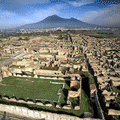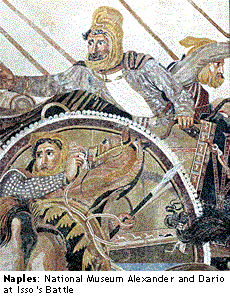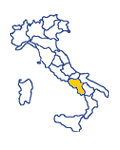
Naples Hotels

Reserve Naples Hotels: save up 70% on rooms!
Compare offers & book on line at hotel's web sites. |
|

|
|
Naples Guide Italy
History and culture
|
|
|
|
|
History and culture
Naples is an ancient city: its origins date back to the 9th Century B.C. when the city of Parthenope was founded on the site where Castel dell'Ovo now stands. In the 6th century B.C., this city was abandoned and was given the name of "Palepolis" (old city) and the new city of "Neapolis" was founded next to it. Its name means exactly that, new city.
Under the rule of the Roman Empire, the city of Naples enjoyed economic and cultural prosperity. The area became popular for holidays due to its beautiful coastline. Luxury thermal spas sprung up around Naples which became famous throughout the empire and which attracted politicians and intellectuals such as Cicero and Virgil.
After the fall of the Roman Empire, Naples became an independent Duchy of Byzantium (763 A.D.), and was an essential part of the conservation of Byzantine dominion in Italy. This autonomous state under Byzantium lasted for almost four centuries, during which the city of Naples developed its economic and cultural affairs even further.
The Byzantines were followed by the Normans, who made Naples a part of the Kingdom of Sicily. The next few centuries were a mixture of peace and war, until Emperor Frederick II came to the throne. He started a particularly rich and flourishing cultural period that culminated in the founding of the University of Naples (1224).
When the Anjou dynasty took over, the city became the capital once more and its population, buildings and economy all grew in size. However, Naples enjoyed one of its most wonderful periods of artistic and cultural splendor under Aragon rule: churches and monuments were built and the city became a central meeting point for many foreign artists.
During the following centuries, the city was ruled by the Spaniards, against whom there was an unsuccessful popular uprising led by “Masaniello” (1647).
After a short period of Austrian rule (1707-1734), Naples finally became an autonomous Kingdom, thanks to Charles of Bourbon.
In 1806, Napoleon gave the throne of the Kingdom of Naples to his brother Giuseppe Bonaparte, and thus started a brief French period for the city (until 1815).
The Bourbon family returned to the throne of the two Sicilies but their rule ended a few years later when Garibaldi entered the city in 1860. A plebiscite of the people decided that the city of Naples should be annexed to the Kingdom of Piedmont, which then became the Kingdom of Italy in 1870.
Go to directories of Web Sites
|
|
|
|
|
Acquista la tua visibilità su Travel Plan
|
|
|
|





